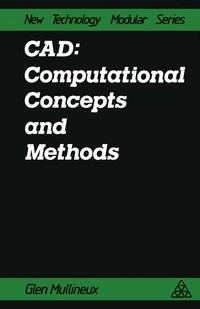
Intersection of straight line segments 103 Non-linearity and the intersection of curves 109 Subdivision and box-testing techniques 114 Closed curves 120 A data structure for closed curves 123 The merging of closed curves 125 Chapter 5: Representation of surfaces 133 Introduction 133 Ruled surfaces 134 Coons' patches 136 Surfaces through given points 141 Bezier surface patches 143 B-spline surfaces 148 The DUCT system 149 Problems involved in putting patches together 153 Chapter 6: MODCON: an example system 159 Background to the system 159 The use of primitive shapes 160 Putting primitives together 165 A simple example 170 Operation of the system 171 Limitations of the system 174 Conclusions 176 Chapter 7: Introduction to surface and solid modelling 177 Introduction 177 Types of geometric modeller 177 Solid modelling 181 Obtaining volumetric properties 186 Defining primitive volumetric shapes 188 Hidden line removal and surface shading 190 References 197 Index 199 CHAPTER 1 Review of some basic ideas Introduction The purpose of this chapter is to review some of the standard notation and concepts that underlie the material to be presented later. These are the ideas of mathematics and of numerical mathematics. They are important from a computer aided design (CAD) point of view because the only way in which we can persuade a computer system to deal with geometry for us is by reducing it to a set of numbers which can then be stored and manipulated.